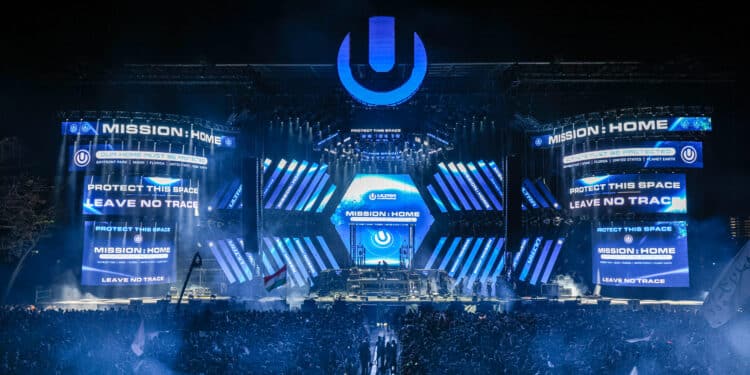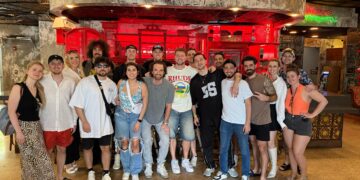California is honoring dance music’s cultural, economic, and community impact by declaring June 2025 “Electronic Dance Music Month.”
The dance music scene was honored in a major way this week after the State of California officially declared June 2025 to be “Electronic Dance Music Month.”
Assemblymember and Majority Whip Mark González, who represents California’s 54th State Assembly district that includes a portion of Los Angeles County, introduced the resolution in late May. Sponsored by a bipartisan group of 74 Assemblymembers and Senators, it was approved and sent to the Senate Rules Committee earlier this month. This week, González took to Instagram to officially announce its declaration for the first time.
“EDM is more than just music festivals,” said Mark González on Instagram. “It’s a vibrant culture rooted in values of peace, love, unity, and respect. These events create inclusive spaces where people from all walks of life can express themselves freely, celebrate loudly, and be unapologetically proud of who they are.”
EDM gave a generation like mine a space to be loud, to be ourselves, and to belong in a world that too often tries to silence us.
Mark González
In the ceremony video, Mark González shared his thoughts on the global impact of electronic dance music, festivals, and the conjoined movement. While honoring the roots, he also noted how important California has been to its growth, calling electronic dance music the state’s “heartbeat.” Joining González at the ceremony was Pasquale Rotella, who was honored for his role in the growth of the dance music scene and expansion of Insomniac, which now hosts over 1,000 events across multiple continents.
Rotella was previously honored by Las Vegas in 2017 at the kick-off of EDC Week. Las Vegas Blvd. was temporarily renamed Electric Daisy Ln., and he was symbolically awarded the “Key to the Las Vegas Strip” due to his contributions to the community after bringing EDC to the city.
This acknowledgment of electronic dance music by the State of California can be seen as a significant shift toward acceptance of the genre and its culture. It starkly contrasts the stance that many in the government and the general public had taken toward raves in the ’90s and early ’00s.








